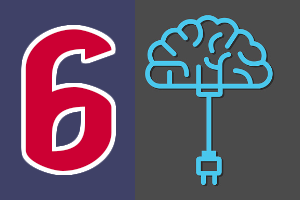SOFT SKILLS – A WAY OF SUCCESS
11 Soft Skills that can Pave Success for you in your Professional Life
In modern times there is a high demand for employment but with time it is becoming tougher to get it. In our life, we go through many processes to get a job like completing our academic qualifications, learning coding ability, computer skills, foreign language, and many more. Unfortunately, even after doing so, many of us don’t get selected for a job interview, the foremost reason is that somewhere we put effort to learn hard skills but forget about the soft skills.
Soft skills are mean which help us to interact with others, teach us to make impactful decisions, and give respect to our time and work, it also helps us to lead and manage.
Every employer is in search of candidates that have the right balance of technical and soft skills because they know their importance in the workplace. There are many aspects of soft skills that the employers are looking for in a candidate, such as:

01. COMMUNICATION SKILLS
Many a time, we aren’t able to put our thoughts in a manner that we want to, this majorly happens because of not communicating well. Most of the time an employee must work with external and team/groups, if you are not able to effectively communicate with your team members, clients, vendors, juniors, or seniors, then it will surely make a bad impact on your performance. Therefore, it is very important to learn to how professionally and effectively communicate.

02. TEAM-WORK
The complex nature of the workplace these days demands the employees work in a team to achieve larger goals. Although many of us like to work alone and aren’t very comfortable working together in a team, this is not the right approach and may hamper achieving the common goals of the organization. Teamwork can produce results far beyond the capacity of an individual and in time far shorter. We must learn to respect teamwork and strive to learn the skill of working in a team for the larger interest.

03. LEADERSHIP
A team is rudderless without an able leader. History is full of examples of good leadership that has helped humanity to achieve success and growth and bad leadership that has caused immense harm. During your career, there may come a time when you will have to lead a team. Your job responsibility will entitle you to keep every member of your team motivated and focused on goals and encourage them to work hard and smart to achieve them. A leader will have to lead by example, help, and motivate the team. A leader is not always born but made, one should always work on their leadership skills to use them when needed.

04. RESPONSIBILITY
When we work in a group environment, there are many sub-tasks that must be undertaken in order to complete a large task. Someone has to take responsibility for a particular task as a team or individually so that others can focus on their respective responsibility. Delegating responsibilities amongst the team also helps to identify problem areas swiftly and correctly, which enhances the overall productivity. So if you get work to do and you do it in a better way taking full responsibility then by doing this you win the trust of your customers. As this your relation with your customers becomes good and they would like to work with you in future.

05. EMPATHY
We as humans are not perfect, everyone is bound to make mistakes once in a while. We also have different capabilities and personalities and therefore may react differently in a common situation. At our workplace, there are chances that our subordinates or co-workers may sometimes make mistakes or delay a job, instead of being harsh on them, we can empathize and help them to correct their mistakes and overcome their challenges. This will give you a better opportunity to gel with your team and make better connections with them.

06. DECISION-MAKING ABILITY
During our professional work, every day we have to make several decisions based on available information and circumstances, a few of them critical too. Our decisions can have a short or long-term impact on the performance of our organization. As an employee, one must know how to make decisions. Sometimes the results may be favorable, few times adverse, but indecisiveness will surely stall the progress of our work and cause losses. One must work on Decision-Making Skills in various work environments.

07. EMOTIONAL CONNECTIVITY
For the growth of a company, the satisfaction of its customers is crucial. The employees of the company

08. RISK-TAKING ABILITY
There is an old adage, “no risk, no gain”. A company will only grow when it knows when and how to make informed risks, with the support of its employees it is able to do so. Therefore, it becomes very important for the employees to be able to analyze the situation based on facts and be courageous enough to take calculated risks for the company and themselves.

09. NEGOTIATIONS
Negotiation is a part of our life, we knowingly and unknowingly engage in negotiation several times a day, at the workplace and in our personal life. Negotiation helps us to better manage our resources and extract better value for our effort and time. As an employee you must know how to negotiate, to get the work done and not end up doing unproductive work. Negotiation is an art that needs better communication, information, and clarity about your responsibilities.

10. PUNCTUALITY
If you are punctual then you get discipline in life and your time will be valued by others. By doing this your work will fall align.

11. LISTENING
Listening is an integral part of effective communication skills. It allows us to understand the other person better and therefore we can have engaging communication. Patience is the key to listening, it also makes other people develop comfort and confidence in your ability to solve the problem.
The role of Soft-Skills is very crucial for success, not only in your professional life but also in your personal life. We should invest time and money in enhancing, honing, and upskilling our soft skills throughout our life.
provide a satisfactory service to their customers and they try to make emotional connectivity with them.

